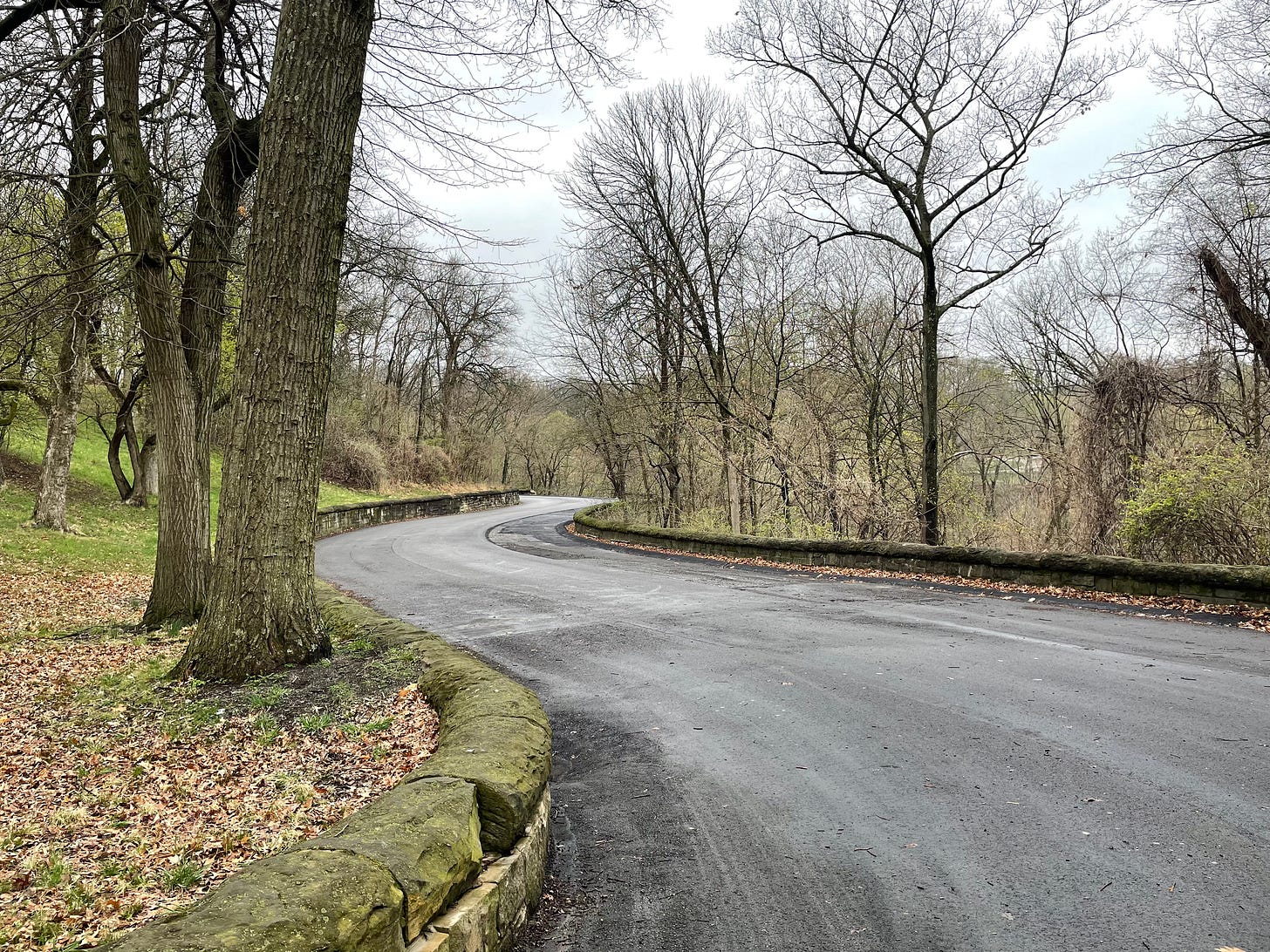I’m quoted this week in Pittsburgh’s free weekly newspaper about a cause I’ve embraced in the past year or so—closing a road through one of the city’s parks to motorized traffic. It’s the sort of neighborhood initiative that I think a lot of people take up as they get older, begin to think more about their obligations to a community’s young people, and become more aware of their own limits and vulnerabilities. As I say in the article, my desire not to be hit by a car somehow feels especially acute now that I’m in my fifties.
Impulses around the park campaign are compounded, I think, by Covid and its aftermaths. The road in question had been given over entirely to pedestrians and bicyclists when I moved to Pittsburgh in 2020, during the lockdown phase of Covid. It was great for the neighborhood adjacent to the park, which has a mix of row houses, apartments, and larger detached homes, with significant student and immigrant communities taking particular advantage of the eclectic mix of housing options. For those of us in the neighborhood who don’t have much in the way of backyards, the pedestrian-friendly path through the park was an important way to claim outdoor space. More than once (to draw a connection to the theme of this newsletter) I saw people reading books there.
So the campaign to close the road in the park to motorized vehicles is about reclaiming a space that walkers and bicyclists had to themselves during the worst of the pandemic, and it feels of a piece with broader struggles over post-pandemic spaces. To pick another example, the slow-streets sign discouraging through-traffic on my block has also gone away since 2020, just as the recent surge in bad and aggressive driving makes that Covid pilot program especially relevant. The pandemic generated a lot of experiments in urban place-making, and it’s a shame so few of them have stuck around.
It may be a bit of a stretch, but there are lessons, I think, for those of us involved with books. The car-less road through Pittsburgh’s park wasn’t some grand innovation. It was local, rooted in specific developments (the collapse of a wall alongside the road and then the pandemic need for increased outdoor space), and above all pragmatic. Thanks to an essentially natural experiment, people discovered that closing our park’s road to cars didn’t bring the city to a halt.
The takeaway for me is pretty straightforward. Being receptive to small changes, nurturing grounded innovations as they percolate—these can be healthier attitudes to change than top-down insistence on absolutes (whether it’s “we must return to pre-pandemic normal” or “Open Access and Artificial Intelligence are inevitable”).
I’ll close with the good news that according to the free weekly paper, Pittsburgh does plan to give the road through the park entirely back to pedestrians and bicyclists, evidently by the end of summer. I hope to see people reading books there again soon.






I was recently in Pittsburgh and had a great experience!!